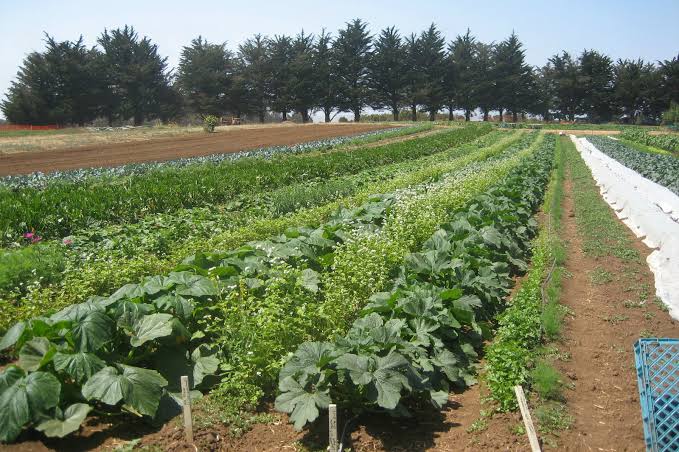Nutrient management in crop production is very essential as nutrient management plays a crucial role in crop production, ensuring that plants receive the right balance of essential elements for healthy growth and optimal yield. Farmers employ various practices to sustainably manage nutrients in their fields, promoting both economic and environmental benefits.
In the realm of agriculture, nutrient management involves the careful application of fertilizers and organic matter to provide crops with the nutrients they need. These nutrients, including nitrogen, phosphorus, and potassium, are essential for the development of robust plants and the production of quality fruits, vegetables, and grains.
Farmers often conduct soil tests to assess nutrient levels and tailor their nutrient management plans accordingly. By understanding the soil’s nutrient content, farmers can make informed decisions about which fertilizers to apply and in what quantities. This not only helps optimize crop growth but also prevents excessive nutrient runoff, which can harm nearby water bodies.
Balancing nutrient inputs is essential to prevent overuse of fertilizers, which can lead to environmental issues such as water pollution and soil degradation.
Sustainable nutrient management practices focus on precision agriculture techniques, ensuring that nutrients are applied efficiently and only where needed. This approach minimizes waste and promotes resource conservation.
Crop rotation is another vital aspect of nutrient management. By alternating crops, farmers can break pest and disease cycles, improve soil structure, and enhance nutrient availability. This practice also contributes to long-term soil fertility and reduces the reliance on synthetic fertilizers.
In addition to chemical fertilizers, organic sources of nutrients, such as compost and manure, play a crucial role in nutrient management. These organic amendments not only provide essential nutrients but also improve soil structure and water retention, contributing to overall soil health.
Efficient irrigation practices also contribute to nutrient management. Proper water management ensures that nutrients are delivered to the plant’s root zone effectively. Drip irrigation and other precision irrigation methods help minimize nutrient leaching and maximize nutrient uptake by crops.
However, nutrient management in crop production is a multifaceted approach that considers soil health, fertilizer application, crop rotation, and water management.
Adopting sustainable practices not only enhances crop productivity but also safeguards the environment for future generations. By carefully managing nutrients, farmers contribute to a more resilient and sustainable agricultural system.
Read Also: Pig Breeds: Origin, Indigenous and Exotic Breeds of Pigs
How to Optimize Nutrient Management in Crop Production

Optimizing nutrient management in crop production involves strategic planning and precise execution to ensure that crops receive the right nutrients at the right time.
Here are key steps to enhance nutrient management for optimal crop yields:
1. Soil Testing: Conduct regular soil tests to assess nutrient levels. This helps determine the current state of the soil and informs decisions about nutrient amendments. Soil testing guides farmers in understanding which nutrients are deficient or abundant, allowing for targeted fertilizer application.
2. Crop Rotation: Implement crop rotation practices to break pest and disease cycles and enhance nutrient availability. Different crops have varied nutrient requirements, and rotating them helps maintain a balanced nutrient profile in the soil. This sustainable practice also contributes to improved soil structure.
3. Precision Agriculture: Embrace precision agriculture technologies to apply nutrients with accuracy. GPS-guided equipment and variable rate technology allow farmers to adjust fertilizer application rates based on specific field conditions. This minimizes over-application and reduces environmental impact.
4. Balanced Fertilization: Use fertilizers with a balanced mix of essential nutrients, including nitrogen (N), phosphorus (P), and potassium (K). The right nutrient ratio supports overall plant growth and development. Avoid excessive use of any single nutrient, as it can lead to imbalances and environmental issues.
5. Organic Amendments: Incorporate organic sources of nutrients, such as compost and manure, into the soil. These materials not only provide essential nutrients but also contribute to soil organic matter, improving soil structure and water retention. Organic amendments enhance nutrient availability over the long term.
6. Cover Crops: Plant cover crops during fallow periods to prevent nutrient leaching and soil erosion. Cover crops add organic matter to the soil and capture excess nutrients, preventing them from washing away. This practice helps maintain soil fertility and reduces the need for external nutrient inputs.
7. Timing of Application: Apply fertilizers at the right time in the crop’s growth cycle. Different crops have specific nutrient requirements during various stages of development. Timely application ensures that nutrients are available when the plants need them the most, promoting optimal growth and yield.
8. Irrigation Management: Manage irrigation efficiently to prevent nutrient leaching. Over-irrigation can wash away nutrients from the root zone, reducing their availability to plants. Implement water-efficient irrigation systems, such as drip or sprinkler irrigation, to minimize nutrient runoff.
9. Monitoring and Adjustments: Regularly monitor crop performance and make adjustments to nutrient management plans based on observed results. This adaptive approach allows farmers to fine-tune nutrient applications, optimizing for the specific needs of their crops and addressing changing environmental conditions.
10. Education and Training: Stay informed about the latest research and best practices in nutrient management. Continuous education and training help farmers make informed decisions, adopt innovative techniques, and stay abreast of sustainable nutrient management approaches.
By integrating these practices, farmers can optimize nutrient management, promote sustainable agriculture, and achieve higher crop yields while minimizing environmental impact.
Read Also: Different Systems of Pig Production for Optimum Performance
Importance of Optimizing Nutrient Management in Crop Production

Optimizing nutrient management in crop production holds significant importance for several key reasons:
1. Maximizing Crop Yields: Efficient nutrient management ensures that crops receive the right balance of essential nutrients. This maximizes their growth potential, leading to increased yields of quality fruits, vegetables, and grains. By providing the necessary nutrients, farmers can optimize the genetic potential of crops and enhance overall productivity.
2. Economic Benefits: Improved nutrient management can result in cost savings for farmers. By accurately assessing soil nutrient levels and applying fertilizers judiciously, farmers can reduce unnecessary expenses on excess inputs. This contributes to a more efficient use of resources, ultimately benefiting the economic viability of farming operations.
3. Environmental Protection: Sustainable nutrient management practices help safeguard the environment. Overuse or mismanagement of fertilizers can lead to nutrient runoff, causing water pollution and negatively impacting ecosystems. Optimizing nutrient application minimizes the environmental footprint of agriculture, preserving water quality and biodiversity.
4. Soil Health and Fertility: Proper nutrient management contributes to soil health and fertility. Balancing nutrient inputs, incorporating organic amendments, and practicing crop rotation enhance soil structure and microbial activity. This, in turn, supports long-term soil fertility, ensuring that agricultural land remains productive over successive growing seasons.
5. Reduction of Greenhouse Gas Emissions: Overuse of nitrogen-based fertilizers can contribute to the release of greenhouse gases, such as nitrous oxide. Optimizing nutrient management reduces the risk of nitrogen leaching and emissions, helping mitigate the environmental impact of agriculture on climate change.
6. Water Conservation: Efficient nutrient management is closely tied to water conservation. By preventing excessive nutrient runoff through precise application and sustainable practices, farmers contribute to the conservation of water resources. This is particularly crucial in regions facing water scarcity or where water quality is a concern.
7. Mitigating Environmental Risks: Optimal nutrient management helps mitigate environmental risks associated with nutrient pollution. Nutrient runoff, particularly phosphorus and nitrogen, can lead to issues such as algal blooms in water bodies, causing harm to aquatic ecosystems. Strategic nutrient management minimizes these risks, protecting both terrestrial and aquatic environments.
8. Resilience to Climate Change: As climate patterns become more unpredictable, optimizing nutrient management becomes crucial for building resilience in agriculture. Tailoring nutrient application to changing climate conditions helps crops adapt to stressors, ensuring better crop health and mitigating the impacts of climate-related challenges.
9. Global Food Security: With a growing global population, optimizing nutrient management is vital for ensuring food security. By increasing crop yields through efficient nutrient practices, farmers can contribute to meeting the rising demand for food, ultimately supporting global food security initiatives.
10. Regulatory Compliance: Many regions have regulations in place to manage nutrient runoff and its environmental impact. Optimizing nutrient management helps farmers comply with these regulations, avoiding potential fines and contributing to sustainable agricultural practices.
In conclusion, the importance of optimizing nutrient management in crop production extends beyond immediate yield benefits. It encompasses economic, environmental, and societal considerations, highlighting the need for sustainable practices that support both agricultural productivity and the well-being of the planet.
Read Also: How to Make Money from Computer Recycling

